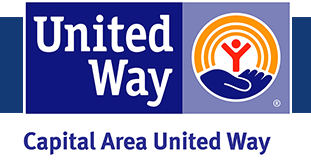Standards of Conduct with Clients
- Volunteers will maintain an open and trustworthy relationship with clients including youth (an individual who has not reached the legal age of majority -18 years of age).
- Volunteers will not use or possess alcohol and/or illicit drugs while working with any client.
- Volunteers will be aware of the potential impropriety and even the appearance of impropriety, when working with clients. Volunteers will not work alone with a youth.
- Volunteers, will not share overnight accommodations alone with youth including, but not limited to, accommodations in any church-owned facility, private residence, hotel room, or any other place. In an emergency situation, when accommodation is necessary for the health and well-being of youth and the above prohibition cannot be avoided, extraordinary care will be necessary for the protection of all parties from the risk of harm and even the appearance of impropriety.
- Volunteers should exercise discretion in having any physical contact with any client.
- All volunteers must respect the faith and/or beliefs of the client. Volunteers will not proselytize or impose personal religious beliefs upon the client
- Volunteers will understand their relationship with the client is not legal or financial in nature.
- Volunteers are prohibited from dating or having sexual contact with any client.
Reporting Standards
- CCDBR personnel and volunteers will hold one another accountable for maintaining the highest ethical, moral and professional standards. Volunteers will take seriously every allegation or report of unethical behavior and/or professional misconduct.
- In the event that the allegation or report involves any form of abuse, either mental, physical, or both, or the substantial risk of danger to the health or welfare of any client, then volunteers will report same to local law enforcement authorities immediately and thereafter report same to their immediate supervisor.
Administration
- Personnel and other administrative decisions made by volunteers will meet civil and canon law obligations; reflect Catholic social teachings and the standards of this Code.
- Volunteers will not use their positions to exercise unreasonable or inappropriate power and authority or take advantage of anyone to further their personal, religious, political, or business interest.
- Volunteers will avoid any situation that might present a conflict of interest or even the appearance of a conflict of interest.
- Volunteers should inform all affected parties including their supervisor, when a real or potential conflict of interest exists.
Well-Being of Volunteers
- Volunteers should be aware of warning signs that indicate potential problems with their own spiritual, physical, mental and/or emotional health.
- Volunteers should seek help immediately whenever they notice behavioral or emotional warning signs in their own lives.
- CCDBR personnel and volunteers should cooperate with and support one another.
Harassment
- Volunteers will not engage in any form of physical, psychological, written and/or oral harassment of any person and will not tolerate any such conduct by any other CCDBR personnel.
- CCDBR personnel and volunteers will maintain a professional work environment that is free from all forms of physical, psychological, written and/or oral intimidation or harassment.
- This prohibition against harassment encompasses a broad range of physical, psychological, written and/or oral behavior including without limitation: physical or mental abuse; racial insults, comments or jokes; derogatory ethnic slurs; unwelcome sexual advances or touching; sexual comments or jokes; display of offensive materials; or requests for sexual activity or behavior of any kind for any reason. CCDBR personnel and volunteers will take every report or allegation of harassment seriously and will report same to their immediate supervisor.
Communication Standards
- CCDBR personnel and volunteers should be open to and accessible to one another and to all parishioners.
- CCDBR personnel and volunteers should address and seek to resolve all matters promptly, efficiently and fairly.
CCDBR personnel and volunteers will not create, send, forward, or transmit any message containing hostile, intimidating and/or offensive material pertaining to race, sex, religion, national origin, disability, or age in any form or medium including, without limitation: verbal, handwritten, typewritten, electronic communication, using any equipment, computer, CCDBR-owned telephone and/or cellular phone, PDA or other device used in connection with CCDBR-related activities.






